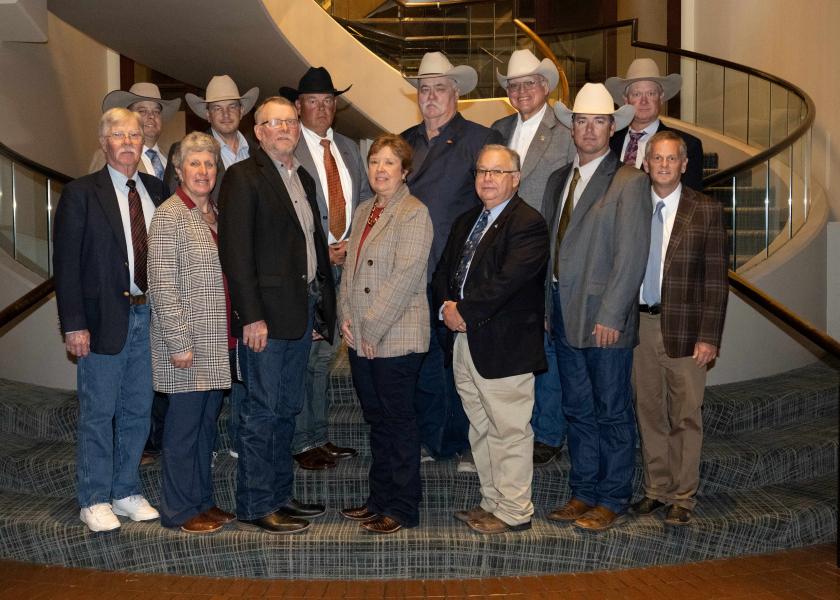Agar, Breeding will Lead American Hereford Association

Wyatt Agar, Thermopolis, Wyo., was announced as the new president of the American Hereford Association (AHA) during the Annual Membership Meeting Oct. 21, in Kansas City, Mo.
Raised on a multigenerational operation based in eastern Oregon, Agar serves as a manager and a partner in Durbin Creek Ranch, Thermopolis, Wyo., and Washakie Feeders, Worland, Wyo. The seedstock division runs 500 head of females and uses AI and embryo transfer (ET) technologies. At weaning, half of the heifers are retained for the cow herd while the other half are marketed as bred females. Bulls are sold as 2-year-olds in a February production sale, which also includes baldy replacement females and ranch geldings. Calves that do not make the bull pen are fed and used to collect data on the sire groups.
The commercial division runs 1,200 Angus and Red Angus cows that are exposed to Hereford bulls to produce F1 calves. The program collects data from birth to harvest on sires used in the seedstock division. At weaning females are sold in the February production sale.
Light steers go to the operation’s stocker program in Oregon, and heavy steers are backgrounded at Washakie Feeders along with 5,000 to 6,000 of the ranch’s bull customers’ calves. These steers are fed to 900 pounds and then finished in Colorado.
Agar and his brother grew up on the family’s cow-calf and stocker operation in Oregon, which they later expanded to include the Wyoming divisions. Agar and his wife, Joey, strive to raise their children, Rylee, Taylor and Cooper, in the same manner — working side-by-side with family to produce high-quality beef cattle off the land and backed by the cowboy ethic.
Breeding selected vice president
Chad Breeding, Miami, Texas, was selected to serve as the 2023 AHA vice president. Breeding was raised working on his family’s registered Hereford operation, B&C Cattle Co. When he was 4 years old, he was already riding horseback with his granddad, Earl, checking the herd.
After graduating high school in 1988, he attended Texas A&M University. Breeding returned home to the family operation, which markets about 100 Hereford bulls and 50 replacement females annually. Breeding’s love for the Hereford breed flourished when he returned home, as he started breeding cows and working in the show barn.
Breeding’s knowledge, gleaned from his father, William, gave him the ability to compete with show cattle on a national level, while also producing beef cattle with the genetic merit the market demands. Through the continued use of AI and embryo transfer (ET), the B&C brand is trusted across the country for sound, functional cattle that work in the showring and excel in the pasture. While they sell a few show heifers, the majority of their cattle are sold to the commercial producer, mostly to Brahman cattlemen who produce the sought after F1 tiger stripes, known as the maternal Queen of the South. Breeding and his wife, Erin, have five children — Austin, Blayke, Wyatt, Lillian and Blair.
Fatherhood emphasized the importance of family and the value of passing down honesty, an outstanding work ethic and a better life. After returning to Miami, a small town in the Texas Panhandle, Breeding became active in the community. He was elected to the city council in November of 2005. He has been the Miami mayor since 2009. He also serves on the board of trustees of the First Christian Church. Breeding is an active member of the Texas Hereford Association, serving on the board since 2011, including stints as president in 2016 and 2017.







